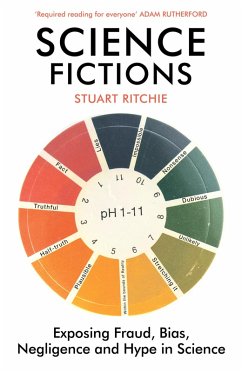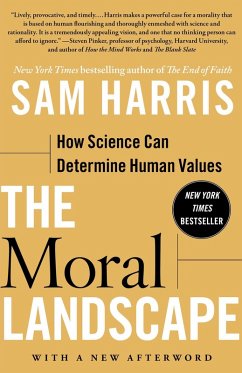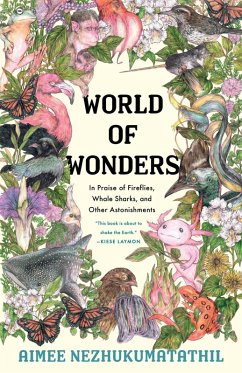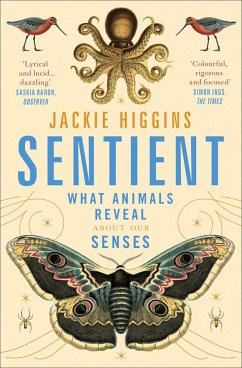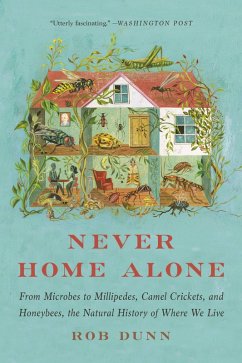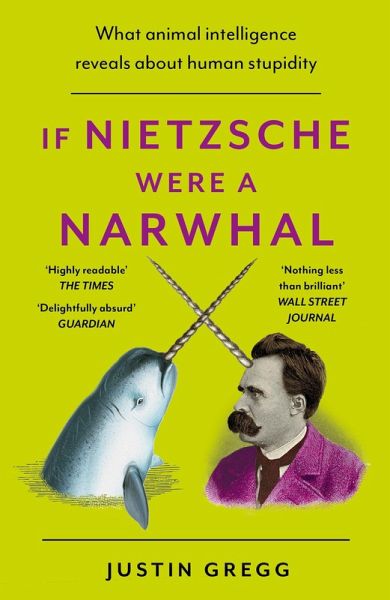
If Nietzsche Were a Narwhal (eBook, ePUB)
What Animal Intelligence Reveals About Human Stupidity - eye-opening and entertaining popular science
Versandkostenfrei!
Sofort per Download lieferbar
4,49 €
inkl. MwSt.
Weitere Ausgaben:

PAYBACK Punkte
0 °P sammeln!
A myth-busting fresh new look at the animal kingdom and our place on Earth - perfect for fans of Remarkably Bright Creatures'Entertaining and original.' Guardian'Accessible and insightful, it's a thought-provoking read.' Observer'Highly readable.' The Times'Nothing less than brilliant.' Wall Street Journal---------What if human intelligence is actually more of a liability than a gift? After all, the animal kingdom, in all its diversity, gets by just fine without it. At first glance, human history is full of remarkable feats of intelligence, yet human exceptionalism can be a double-edged sword....
A myth-busting fresh new look at the animal kingdom and our place on Earth - perfect for fans of Remarkably Bright Creatures
'Entertaining and original.' Guardian
'Accessible and insightful, it's a thought-provoking read.' Observer
'Highly readable.' The Times
'Nothing less than brilliant.' Wall Street Journal
---------
What if human intelligence is actually more of a liability than a gift? After all, the animal kingdom, in all its diversity, gets by just fine without it. At first glance, human history is full of remarkable feats of intelligence, yet human exceptionalism can be a double-edged sword. With our unique cognitive prowess comes severe consequences, including existential angst, violence, discrimination, and the creation of a world teetering towards climate catastrophe. What if human exceptionalism is more of a curse than a blessing?
As Justin Gregg puts it, there's an evolutionary reason why human intelligence isn't more prevalent in the animal kingdom. Simply put, non-human animals don't need it to be successful. And, miraculously, their success arrives without the added baggage of destroying themselves and the planet in the process.
In seven mind-bending and hilarious chapters, Gregg highlights features seemingly unique to humans - our use of language, our rationality, our moral systems, our so-called sophisticated consciousness - and compares them to our animal brethren. What emerges is both demystifying and remarkable, and will change how you look at animals, humans, and the meaning of life itself.
--------
WHAT READERS ARE SAYING:
'Witty and informative' ¿¿¿¿¿
'This is a great book - both for its message and its delivery' ¿¿¿¿¿
'I loved this book. The stories were insightful and the writing was light enough to keep you reading cover to cover' ¿¿¿¿¿
'Entertaining and original.' Guardian
'Accessible and insightful, it's a thought-provoking read.' Observer
'Highly readable.' The Times
'Nothing less than brilliant.' Wall Street Journal
---------
What if human intelligence is actually more of a liability than a gift? After all, the animal kingdom, in all its diversity, gets by just fine without it. At first glance, human history is full of remarkable feats of intelligence, yet human exceptionalism can be a double-edged sword. With our unique cognitive prowess comes severe consequences, including existential angst, violence, discrimination, and the creation of a world teetering towards climate catastrophe. What if human exceptionalism is more of a curse than a blessing?
As Justin Gregg puts it, there's an evolutionary reason why human intelligence isn't more prevalent in the animal kingdom. Simply put, non-human animals don't need it to be successful. And, miraculously, their success arrives without the added baggage of destroying themselves and the planet in the process.
In seven mind-bending and hilarious chapters, Gregg highlights features seemingly unique to humans - our use of language, our rationality, our moral systems, our so-called sophisticated consciousness - and compares them to our animal brethren. What emerges is both demystifying and remarkable, and will change how you look at animals, humans, and the meaning of life itself.
--------
WHAT READERS ARE SAYING:
'Witty and informative' ¿¿¿¿¿
'This is a great book - both for its message and its delivery' ¿¿¿¿¿
'I loved this book. The stories were insightful and the writing was light enough to keep you reading cover to cover' ¿¿¿¿¿
Dieser Download kann aus rechtlichen Gründen nur mit Rechnungsadresse in A, B, BG, CY, CZ, D, DK, EW, E, FIN, F, GR, HR, H, IRL, I, LT, L, LR, M, NL, PL, P, R, S, SLO, SK ausgeliefert werden.





